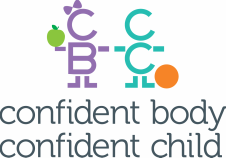FACT sheet 2: building a positive body image
_ _ _ _ _ _ _ _ _ _ _ _ _ _ _ _ _ _ _ _ _ _ _ _ _ _ _ _ _ _ _ _ _ _ _ _ _ _ _ _ _ _ _ _ _ _ _ _ _
How to combat unhelpful comments
This fact sheet aims to help you teach your child how to deal with negative comments and build resilience to the comments of others.
This fact sheet aims to help you teach your child how to deal with negative comments and build resilience to the comments of others.
This fact sheet is available as a printable document in colour or black and white, or you can read below for more details.

Teasing among family and friends can be meant with playful affection, where someone might be singled out for funny or unusual things they do or say. Teasing a child about their appearance, weight, or body shape, however, can cause embarrassment or shame. Appearance-based teasing has been associated with children experiencing body dissatisfaction, becoming preoccupied with their body and appearance, difficulties with food and eating, low self esteem, and depression.
Helping your child combat teasing should NOT focus on changing the way your child looks to reduce the teasing. Instead, you can help your child by supporting them to develop skills to deal effectively with any comments or conversations that are
hurtful to them. Emphasise to your child that teasing is NOT
OK and your child does not have to put up with it.
Helping your child combat teasing should NOT focus on changing the way your child looks to reduce the teasing. Instead, you can help your child by supporting them to develop skills to deal effectively with any comments or conversations that are
hurtful to them. Emphasise to your child that teasing is NOT
OK and your child does not have to put up with it.
|
I can stand up for myself...
· Help your child practice holding their body in a strong, confident way. This might include standing up tall and looking at people in the eye when talking to them. · Encourage your child to be with others who make them feel good, not bad. · Your child can ignore the teaser and/or walk away and that’s OK. I can be my best... Think about the activities, people, and environments that bring out the best in your child. Examples might be: · Helping you with an activity, such as gardening or cooking · Building or creating something with another family member · Spending time with a friend or family member who shares a similar interest (e.g., going to the football and cheering or going for a ride on the local train) · Trying a new skill |
I can speak up for myself...
Help your child develop basic words or phrases to use if someone says something hurtful about them, such as: · “I don’t like it when you say that to me” · “Please stop” · “I am OK the way I am” · “I don’t need to change or be different” · “It doesn’t matter what you think” I am not alone... · Let your child know that it is ok to seek help from an adult. · Let your child know they can come to you or other adults they may like to talk to. · Praise your child if they do come to you for help (e.g., “I am really glad you let me know about this”) and make it clear to your child that you will do something together to help the situation. |

